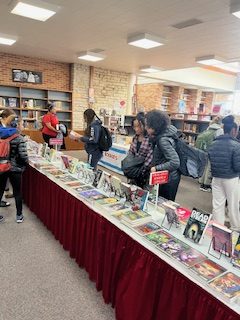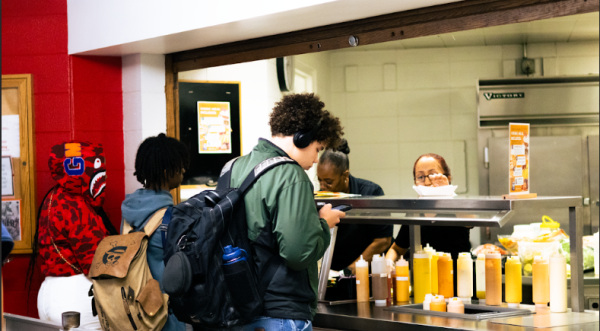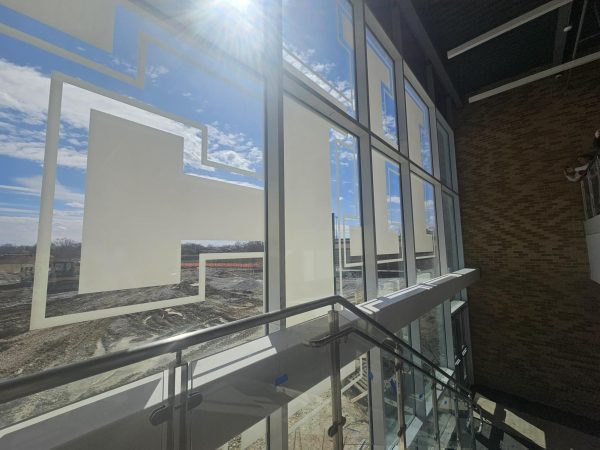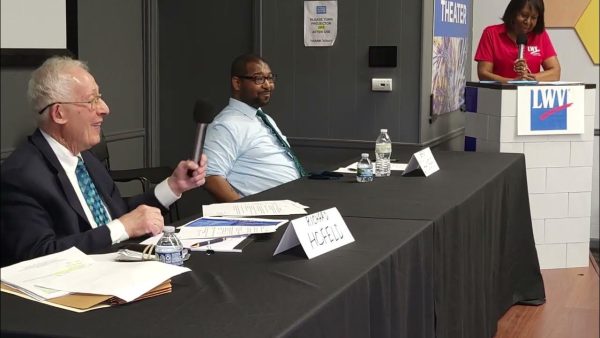Polarizing deadly force cases have students, staff talking
Weeks have passed since grand juries in Ferguson and Staten Island decided against indicting police officers for their roles in the deaths of black males; however, the polarizing conversations about race and police use of deadly force continue nationwide and here at H-F.
The conversations about deeply-rooted racial inequality and police brutality have flooded the hallways, classrooms, cafeterias and, perhaps most of all, social media.
African American history teacher John Schmidt says a lesson on the “complicated relationship between law enforcement and the African American community” is already a part of the curriculum here.
“I think the Ferguson story fits right into the narrative,” Schmidt said. “No matter what you think about what should or should not have happened, it’s a moment of historical significance in the ongoing discussion of racism and enforcement in America.”
Protests erupted nationwide when a grand jury did not indict Ferguson officer Darren Wilson for his role in the death of Michael Brown.
Junior Kristyn Tully says she was shocked by the “unfairness” of the non-indictment and the reactions online.
“I was outraged because of the lack of justice in the so-called justice system,” Tully said. “Then I saw on social media that people legitimately think it’s not a race thing.”
However, Senior Kyle Matl says the grand jury made the right decision.
“If there was evidence that they saw then there was no reason to go to (trial),” Matl said. “The police did their job by attempting to apprehend him.”
The night the Ferguson decision was released, many students argued online about whether the case was race related.
“I feel like if it was a black cop that killed a white kid, he would have been in jail the next day,” senior Bradley McCarroll said.
Like much of America, students argued whether the decision was race related.
“It’s not about the fact that [Wilson] was white, it’s the fact that he shot a teenager and got off on nothing,” junior Reilly Dougherty said.
Protests continue from Berkeley to New York City, and even our own backyard of Chicago. Junior Tina Calhoun attended the protest in Chicago the night the Ferguson grand jury decision was announced.
“I definitely wanted the experience because this is the first event that happened that I really understood,” Calhoun said. “I wanted to show my support.”
The protests and riots have also sparked student conversations.
“The riots and protests are going overboard,” McCarroll said. “Us caring and rioting about this case isn’t going to help us in the long run because the entire system is designed to go against [black males].”
Some say systematic racism is responsible for the protests and conversations about race.
“We’re all human, so it’s not really that big of a deal to talk about,” Dougherty said.
Another side believes that these protests could mean a better future for America.
“People have tried being non-violent and police brutality continues taking out action against these citizens,” senior Michael Crecco said. “The riots are a good thing, because it shows that people aren’t willing anymore to take abuse from the police help us in the long run because the entire system is designed to go against [black males].”
Talking about race and police use of force can be uncomfortable for some, but AP Language and Composition teacher Joseph Upton says it’s an important conversation to have.
“I think we have to ask ourselves these questions on race, and how we deal with racism in this country,” Upton said.
Dougherty doesn’t see the big deal.
“We’re all human, so it’s not really that big of a deal to talk about,” Dougherty said.
Others say the protests might help start a conversation that makes positive changes.
“People have tried being non-violent, and police brutality continues taking out action against these citizens,” senior Michael Crecco said. “The riots are a good thing, because it shows that people aren’t willing anymore to take abuse from the police.”
The conversations pertain to structural racism’s presence in our society and the devaluing of minorities, according to senior Evan Runburg.
“Everyone should care about this case,” McCarroll said. “This shouldn’t just be a black person issue; it should make us realize that this stuff is still happening out here.”
Our community may forget about this case in a few months; however, “the conversations are a “big step,” junior Sophie O’Connor said.
“One day we are going to be the parents and the grandparents that face these problems,” junior John Manley said. “And we are going to be the ones who need to fix it.”





